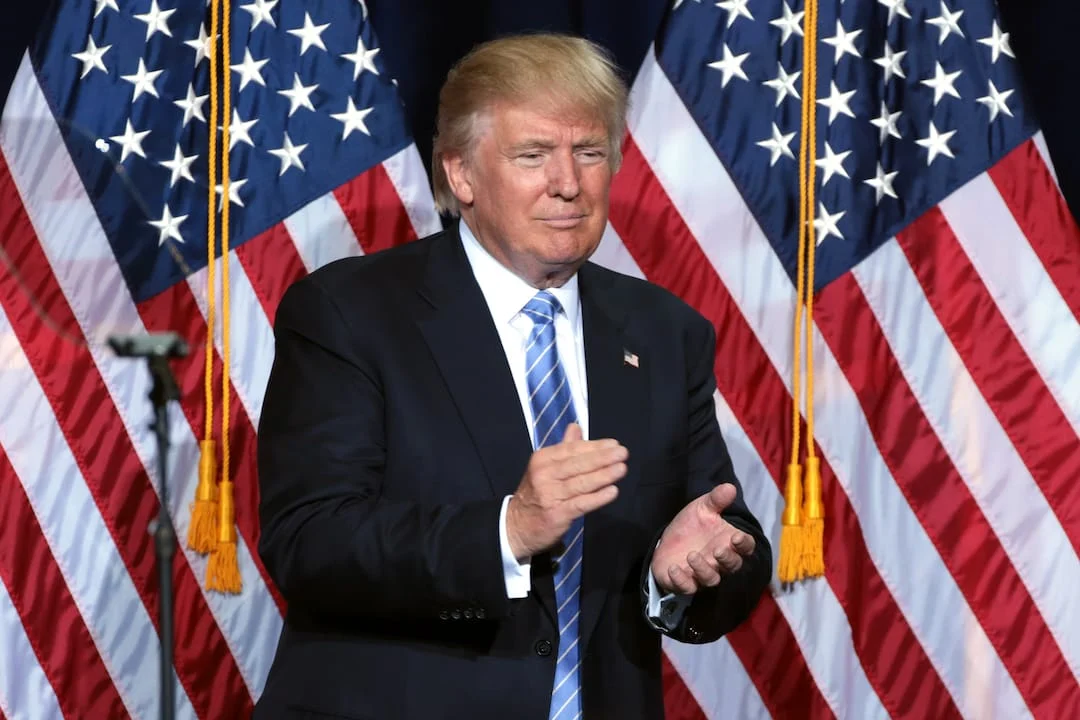Policy & Restrictions
Trump’s New Travel Ban Leaves 12 Nations in Shock as Entry to the US Gets Blocked
Former President Donald Trump enforces sweeping travel restrictions targeting nationals from 12 specific countries, sparking global concern and political debate.

In a sweeping policy move that’s stirring both domestic and international reactions, former U.S. President Donald Trump has announced a full-scale travel ban impacting nationals from 12 countries. According to circulating reports and visual evidence shared across social media, the travel restrictions aim to limit or fully halt the entry of individuals from Afghanistan, Burma (Myanmar), Chad, Republic of the Congo, Equatorial Guinea, Eritrea, Haiti, Iran, Libya, Somalia, Sudan, and Yemen.
This decisive action, which echoes similar executive orders from Trump’s presidential term, is being framed as a move to “protect national security and American interests,” although critics and advocacy groups have raised alarms about its human rights implications. While no official White House statement has yet confirmed the specifics, the image currently going viral features the former Commander-in-Chief sternly framed next to a symbolic aviation ban, strongly implying renewed enforcement on immigration.
As many may recall, the former U.S. President made headlines during his tenure with the 2017 “Muslim Ban,” which also included several of the same countries. That move drew widespread protests and a cascade of legal battles, ultimately landing in the Supreme Court. This latest update, if confirmed, could be seen as a return to similar foreign policy principles that emphasize extreme vetting and limited entry based on perceived national threats.
The banned nations span multiple regions, including Africa, the Middle East, and Southeast Asia, encompassing countries that have experienced prolonged conflict, fragile political structures, or are on watchlists for terrorism-related activity. While officials supporting the ban argue it’s a necessary step to protect American citizens and national infrastructure, humanitarian organizations argue it unfairly targets innocent civilians, especially refugees and students, who now find themselves cut off from entry to the United States.
Supporters of the former President are rallying around this decision, calling it a “return to tough leadership” that prioritizes safety over sentiment. However, the global response has been swift and critical. Several human rights watchdogs have labeled the move discriminatory and harmful to international diplomacy. Some governments are expected to issue formal statements of protest if the travel ban enters into formal effect.
What remains to be seen is how this policy will be received by the current administration and whether legal challenges will arise again. Political analysts speculate that this announcement may be part of a broader attempt by Trump to reassert influence on U.S. immigration policy ahead of the next election cycle.
Politics
Anthony Albanese All In on $368 Billion AUKUS Gamble as Trump’s Return Looms Large
With Donald Trump’s potential comeback casting uncertainty over AUKUS, Prime Minister Albanese doubles down on Australia’s largest-ever defense deal

Prime Minister Anthony Albanese is facing mounting pressure over his government’s $368 billion AUKUS submarine deal, as the geopolitical landscape shifts with the rising possibility of Donald Trump returning to the White House. The historic defense pact, designed to bolster Australia’s military might and deepen strategic ties with the U.S. and U.K., now stands on increasingly shaky ground — politically and financially.
The AUKUS agreement, signed under the Morrison government and endorsed by Albanese, is Australia’s largest-ever military commitment, promising a future fleet of nuclear-powered submarines to deter growing threats in the Indo-Pacific. But with Trump widely speculated to be plotting a 2024 presidential comeback, the long-term reliability of U.S. involvement — and the stability of the deal — is suddenly uncertain.
Trump, during his first term, repeatedly questioned America’s role in global alliances, criticized NATO spending, and flirted with isolationist policies. If reelected, experts warn he may adopt a similar stance toward AUKUS, leaving Australia holding a multi-billion-dollar investment without guaranteed delivery or long-term strategic backing.
Despite the risks, Albanese has made it clear: Australia is all in. During recent public appearances and national security briefings, the Prime Minister reaffirmed his commitment to the pact, describing it as “an essential investment in our sovereignty and future security.” Behind closed doors, however, senior defense officials are reportedly scrambling to shore up contingencies in case a future Trump administration tries to renegotiate or abandon the deal.
Critics at home are also beginning to voice their doubts. Opposition figures and defense analysts have raised concerns about the astronomical cost, the decades-long timeline, and the political volatility of the United States, questioning whether this is a wise use of taxpayer money in an era of budget constraints and growing domestic pressures.
On the global stage, China has predictably condemned the deal, calling it a destabilizing move in the region. Meanwhile, U.K. officials remain cautiously optimistic, focusing on their role as the third pillar of the trilateral agreement and hoping that a U.S. power shift won’t derail the broader vision.
For now, Albanese is betting that bipartisan support in Washington and strong military-to-military ties will keep AUKUS afloat, even if Trump returns. But with billions already committed and construction timelines stretching into the 2040s, the Prime Minister’s gamble is no longer just strategic — it’s personal, political, and potentially historic.
Law & Order
Police Ramp Up Road Safety Enforcement for King’s Birthday Weekend
Authorities implement stricter measures to curb rising road fatalities during the holiday period

As Australians prepare for the King’s Birthday long weekend, police across the nation are intensifying road safety measures in response to a concerning increase in traffic-related fatalities. In Victoria, authorities have launched Operation Regal, a statewide initiative aimed at reducing road trauma during this high-risk period. The operation, running from Friday, June 6 to Monday, June 9, will see heightened police presence on major arterials and highways, particularly those leading to holiday destinations and alpine regions. Speeding, distracted driving, and impaired driving are key focus areas, with officers conducting random breath and drug tests to deter dangerous behaviors.
The urgency of these measures is underscored by alarming statistics: Victoria has recorded 136 road deaths in 2025, marking a 14% increase compared to the same period last year and reaching a 16-year high. May alone saw 37 fatalities, the worst for that month since 2004. Particularly concerning is the rise in deaths among vulnerable road users, including motorcyclists and pedestrians.
In New South Wales and the Australian Capital Territory, double demerit points are in effect from June 6 to June 9. Offences such as speeding, illegal mobile phone use, not wearing seatbelts, and helmet violations will incur double the usual demerit points, increasing the risk of license suspension for repeat offenders.
While states like South Australia, Tasmania, and the Northern Territory do not implement double demerits, they are conducting their own safety campaigns. Tasmania Police, for instance, are urging caution during the Dark Mofo festival, emphasizing the importance of pedestrian safety in low-light conditions.
Authorities nationwide are appealing to all road users to prioritize safety, adhere to traffic laws, and remain vigilant. With increased enforcement and public awareness campaigns, the goal is to prevent avoidable tragedies and ensure everyone reaches their destinations safely during the holiday weekend.
Politics
Cobb County and Mableton Reach One-Year Agreement to Restore Public Services
Suspended sanctions lifted as both parties agree on $9.5 million deal for law enforcement and transportation services

In a significant development for Cobb County, Georgia, and its newly incorporated city of Mableton, local leaders have reached a one-year agreement to resume essential public services, including law enforcement and transportation. This accord comes after the Georgia Department of Community Affairs had imposed sanctions due to a missed deadline for finalizing a Service Delivery Strategy (SDS) agreement.
The temporary agreement stipulates that Mableton will pay Cobb County $9.5 million for police and Department of Transportation (DOT) services over the next year. This figure is a compromise from the county’s initial demand of $23 million. The deal was brokered with the assistance of a mediator during a 12-hour negotiation session at the David Hankerson Building.
While the agreement ensures the continuation of vital services, it also raises concerns about potential double taxation. Mableton residents currently contribute over $41 million in property taxes to the county, a portion of which funds public safety and transportation. City officials argue that the additional $9.5 million payment effectively charges residents twice for the same services.
To address the financial implications, Mableton’s City Manager has proposed the establishment of a Special Service District for Public Safety and DOT. This approach aims to raise necessary funds without implementing a citywide property tax, a measure Mayor Michael Owens opposes. The city is also exploring the possibility of forming its own municipal police department if a long-term agreement with the county cannot be reached.
The one-year SDS agreement serves as a stopgap measure, allowing
-

 US News1 week ago
US News1 week ago“She Never Made It Out…” Albany House Fire Claims Woman’s Life as Family Pleads for Help to Bring Her Home
-

 Entertainment7 days ago
Entertainment7 days agoXG Star Cocona Shares a Brave Truth at 20 — “I Was Born Female, But That Label Never Represented Who I Truly Am…”
-

 Entertainment7 days ago
Entertainment7 days agoSamba Schutte Reveals the Surprise Cameo in Pluribus That “Nobody Saw Coming”… and Why John Cena Was Perfect for the Role
-

 Tech1 week ago
Tech1 week agoAfter Losing Over $70 Billion, Mark Zuckerberg Finally Admits His Biggest Bet Is “Not Working” – Meta Plans Massive Cuts to Metaverse Budget
-

 Entertainment1 week ago
Entertainment1 week agoNika & Madison stuns global audiences as director Eva Thomas reveals why “resilience, not fear, drives Indigenous women on the run”
-

 Entertainment5 days ago
Entertainment5 days agoSaudi Arabia’s entertainment revolution… Red Sea Film Foundation CEO Faisal Baltyuor says he ‘wears many hats’ — but one mission drives them all
-

 Sports5 days ago
Sports5 days agoDodgers Stun MLB With Blockbuster Move, Sign Elite Closer Edwin Díaz to Three-Year, $69 Million Deal
-

 Entertainment5 days ago
Entertainment5 days agoTeyana Taylor wakes up to a Golden Globe call at 5 a.m.… ‘Am I dreaming right now?’ — and why she’s already begging Paul Thomas Anderson for more
















